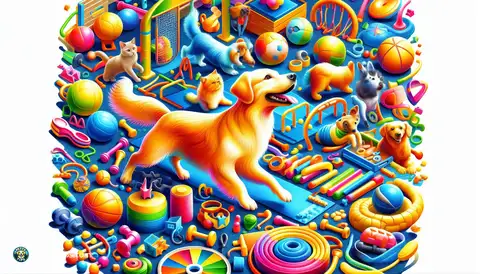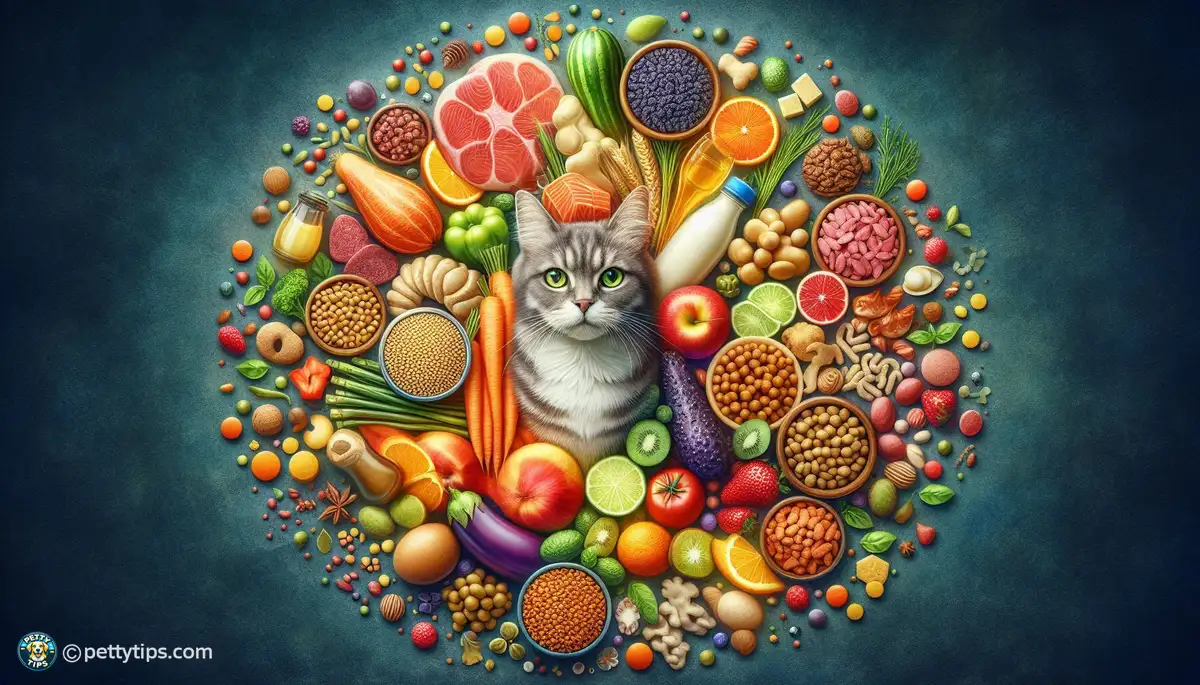
Exercise Essentials: Keeping Your Pet Active and Fit
Zoey Gearhart - Sep 26, 2024 - 6 min read


Ensuring your pet receives a balanced diet is crucial for their overall health and well-being. Just like humans, pets require a combination of essential nutrients to thrive. From proteins to vitamins and minerals, each nutrient plays a unique role in maintaining various bodily functions. By providing your furry friend with a well-rounded diet, you can help support their immune system, promote healthy growth and development, and prevent nutritional deficiencies.
Different pets have different nutritional requirements based on factors such as species, breed, age, activity level, and overall health status. For example, a growing puppy will need more protein and calories to support their rapid growth, while a senior cat may require a diet tailored to manage age-related health issues. It's essential to consult with your veterinarian to determine the specific nutritional needs of your pet and create a diet plan that meets those requirements.
Protein is often referred to as the building block of life, and for good reason. It plays a critical role in the growth, repair, and maintenance of tissues and organs in your pet's body. From muscles and bones to skin and fur, protein is essential for building and maintaining healthy cells. In addition to its structural role, protein also serves as a source of energy and supports various metabolic processes.
When selecting pet food, it's important to prioritize high-quality protein sources. Look for ingredients such as chicken, beef, fish, and eggs, which provide complete and balanced proteins containing all the essential amino acids your pet needs. Avoid foods with excessive fillers and by-products, as these may lack the necessary nutrients or be difficult for your pet to digest. Opting for premium pet foods formulated with real meat as the primary ingredient can help ensure your furry friend gets the protein they need to thrive.
Carbohydrates serve as the primary source of energy for your pet's body. They are broken down into glucose, which fuels cellular activities and supports various bodily functions, including movement, digestion, and brain function. While dogs and cats are primarily carnivores, they can still benefit from moderate amounts of carbohydrates in their diet, especially for sustained energy throughout the day.
When incorporating carbohydrates into your pet's diet, opt for nutrient-dense sources such as whole grains, fruits, and vegetables. These provide not only energy but also essential vitamins, minerals, and dietary fiber, which promote digestive health and overall well-being. However, it's important to avoid excess sugars and refined carbohydrates, as these can lead to weight gain and other health issues. Instead, focus on wholesome, natural ingredients that provide long-lasting energy and nutritional benefits.
Fats are another essential nutrient that plays a vital role in your pet's overall health and vitality. They serve as a concentrated source of energy, providing more than twice the calories per gram compared to protein and carbohydrates. In addition to fueling energy needs, fats also play a key role in nutrient absorption, hormone production, and the maintenance of healthy skin and coat.
When selecting fats for your pet's diet, prioritize healthy sources such as omega-3 and omega-6 fatty acids. These essential fatty acids play a crucial role in supporting immune function, reducing inflammation, and promoting cardiovascular health. Good sources of omega-3 fatty acids include fish oil, flaxseed, and walnuts, while omega-6 fatty acids are abundant in oils such as sunflower, safflower, and corn. Incorporating these healthy fats into your pet's diet can help support their overall well-being and longevity.
Vitamins are organic compounds that play a variety of essential roles in your pet's body, from supporting growth and development to regulating metabolism and immune function. While pets require vitamins in much smaller quantities compared to other nutrients, they are nonetheless crucial for maintaining optimal health. Each vitamin plays a unique role, and deficiencies can lead to a range of health issues.
To ensure your pet receives an adequate supply of vitamins, it's important to provide a balanced and varied diet. Most commercial pet foods are fortified with essential vitamins to meet minimum requirements, but incorporating fresh fruits and vegetables into your pet's diet can further enhance their vitamin intake. Some key vitamins to include in your pet's diet include vitamin A for vision health, vitamin D for calcium absorption, vitamin E for immune function, and vitamin K for blood clotting.
Minerals are inorganic elements that are essential for various physiological processes in your pet's body. From bone formation and nerve function to fluid balance and enzyme activity, minerals play a critical role in maintaining overall health and well-being. While some minerals are needed in larger quantities, others are required in trace amounts, but all are equally important for optimal health.
Balancing mineral intake is crucial to prevent deficiencies or imbalances that can lead to health issues. Common minerals that pets require include calcium, phosphorus, potassium, magnesium, sodium, and chloride. These minerals can be found in a variety of foods, including meat, dairy, fruits, and vegetables. However, it's important to avoid excessive supplementation, as too much of certain minerals can be harmful. Consulting with your veterinarian can help ensure your pet's mineral needs are met without overdoing it.
Water is often overlooked as a nutrient, but it is perhaps the most critical component of your pet's diet. It plays a vital role in virtually every physiological process, from digestion and nutrient absorption to temperature regulation and waste removal. Without an adequate supply of water, your pet's body cannot function properly, leading to dehydration and a range of health problems.
Providing access to clean, fresh water at all times is essential for maintaining your pet's hydration levels. Be mindful of your pet's water consumption, especially during hot weather or periods of increased activity. Some pets may need encouragement to drink more water, such as adding flavorings or using a pet fountain. Additionally, wet food can contribute to your pet's overall water intake, making it a good option for pets who are reluctant to drink from a bowl.
In conclusion, providing your pet with a balanced and nutritious diet is essential for their overall health and well-being. By understanding the role of essential nutrients such as protein, carbohydrates, fats, vitamins, minerals, and water, you can ensure that your furry friend receives the nourishment they need to thrive. Remember to consult with your veterinarian to tailor your pet's diet to their specific needs and make adjustments as necessary to support their health at every stage of life. With the right diet and care, you can help your pet live a long, happy, and healthy life.